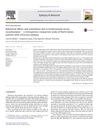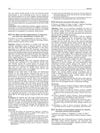 41 citations,
March 2010 in “Psychology Research and Behavior Management”
41 citations,
March 2010 in “Psychology Research and Behavior Management” Using psychological treatments can help manage skin conditions along with regular medical care.
 10 citations,
May 2018 in “Neuropharmacology”
10 citations,
May 2018 in “Neuropharmacology” Drugs for hormone-related conditions might help treat mental disorders but could have serious side effects.
8 citations,
January 2016 in “Case Reports in Psychiatry” Trichotillomania in dementia may be better treated with dopamine blockers like quetiapine than with SSRIs.
[object Object]  2 citations,
September 2022 in “Dermatologic therapy”
2 citations,
September 2022 in “Dermatologic therapy” Microneedling helps reduce hair-pulling and promotes hair regrowth in trichotillomania patients.
 144 citations,
July 2015 in “Clinical, Cosmetic and Investigational Dermatology”
144 citations,
July 2015 in “Clinical, Cosmetic and Investigational Dermatology” Alopecia areata is a common autoimmune disease affecting about 2% of people, causing significant disability and often associated with mental health issues and other autoimmune conditions.
 January 2019 in “Elsevier eBooks”
January 2019 in “Elsevier eBooks” Different hair disorders have specific treatments and outcomes, with some resolving on their own and others requiring medication or emotional support.
 1 citations,
January 2002 in “Dermatology + psychosomatics”
1 citations,
January 2002 in “Dermatology + psychosomatics” Most people worried about abnormal hair loss actually have psychological issues like depression or anxiety.
6 citations,
December 2016 in “Journal of Obsessive-Compulsive and Related Disorders” Adults with trichotillomania do not have different pain sensitivity to cold pressor pain compared to healthy individuals.
[object Object]  6 citations,
November 2007 in “Archives of Disease in Childhood: Education & Practice”
6 citations,
November 2007 in “Archives of Disease in Childhood: Education & Practice” The document concludes that accurate diagnosis of alopecia in children relies on thorough examination and history, and while treatments exist, none can alter the course of alopecia areata, which can significantly affect a child's psychological well-being.
 November 2020 in “Journal of The American Academy of Dermatology”
November 2020 in “Journal of The American Academy of Dermatology” Men with male pattern baldness may be more at risk for severe COVID-19, and anti-androgen treatments could offer protection.
 41 citations,
June 2018 in “Medicine Health Care and Philosophy”
41 citations,
June 2018 in “Medicine Health Care and Philosophy” The article suggests using four questions to tell apart necessary medicalization from excessive medicalization, focusing on problem significance, social expectations, medical understanding, and effective resolution.
 53 citations,
October 1993 in “Drug Safety”
53 citations,
October 1993 in “Drug Safety” Oral retinoids can cause side effects ranging from mild to severe, including birth defects, and require careful monitoring and contraception.
 28 citations,
May 2015 in “Addiction Biology”
28 citations,
May 2015 in “Addiction Biology” Prenatal stress changes how male and female rats enjoy rewards differently, linked to sex hormones.
 40 citations,
July 2017 in “Frontiers in Medicine”
40 citations,
July 2017 in “Frontiers in Medicine” Early and personalized treatment for hair loss in young people is crucial to prevent permanent damage and should include psychological support.
 17 citations,
June 2011 in “Dermatologic Surgery”
17 citations,
June 2011 in “Dermatologic Surgery” Hair transplantation is an effective way to restore eyebrows.
 10 citations,
October 2016 in “Epilepsy & behavior”
10 citations,
October 2016 in “Epilepsy & behavior” Levetiracetam often causes behavioral issues, while oxcarbazepine is more likely to cause sleepiness in epilepsy patients.
 4 citations,
October 2016
4 citations,
October 2016 Herbs like aloe vera and amla are effective and safe for treating hair loss.
 1 citations,
July 2015 in “The European research journal”
1 citations,
July 2015 in “The European research journal” Stopping aripiprazole can reverse its side effect of hair loss.
 170 citations,
December 2009 in “Histopathology”
170 citations,
December 2009 in “Histopathology” The conclusion is that accurate diagnosis of different types of hair loss requires good teamwork between skin doctors and lab experts.
 38 citations,
April 2018 in “Psychopharmacology/Psychopharmacologia”
38 citations,
April 2018 in “Psychopharmacology/Psychopharmacologia” Blocking CRF-R1 can reduce alcohol intake in stressed mice.
 January 2012 in “Yearbook of Dermatology and Dermatologic Surgery”
January 2012 in “Yearbook of Dermatology and Dermatologic Surgery” Iron deficiency is not more common in women with hair loss, and neurogenic rosacea may need different treatment.
 November 2003 in “Journal of Dermatology”
November 2003 in “Journal of Dermatology” Authors defend finasteride-depression link, suggest detailed medical history, and call for more investigation.
 35 citations,
May 2012 in “Expert Opinion on Pharmacotherapy”
35 citations,
May 2012 in “Expert Opinion on Pharmacotherapy” The document concludes that there are various treatments for different types of alopecia, but more research is needed for evidence-based treatments.
 6 citations,
December 2008 in “Clinics in Dermatology”
6 citations,
December 2008 in “Clinics in Dermatology” Escitalopram might effectively treat delusions of parasitosis and possibly Morgellons disease, with psychological factors being important to consider.
 September 2009 in “European journal of paediatric neurology”
September 2009 in “European journal of paediatric neurology” Biotin supplements did not significantly reduce hair loss in rats on valproic acid.
 22 citations,
December 2018 in “British Journal of Clinical Pharmacology”
22 citations,
December 2018 in “British Journal of Clinical Pharmacology” HPV vaccines are generally safe but need further investigation for rare side effects.
 October 2023 in “Cognizance journal”
October 2023 in “Cognizance journal” The document suggests using natural remedies like bloodletting and honey for various health issues but lacks scientific evidence for their effectiveness.
 November 2012 in “Hair transplant forum international”
November 2012 in “Hair transplant forum international” Hair loss patients may often have Body Dysmorphic Disorder, and proper psychological assessment and treatment can help.
2 citations,
June 2020 in “Clinical & experimental allergy/Clinical and experimental allergy” Referral rates for anaphylaxis patients improved significantly after implementing guidelines.

Current treatments for alopecia areata often fail to achieve and maintain significant hair regrowth.



























